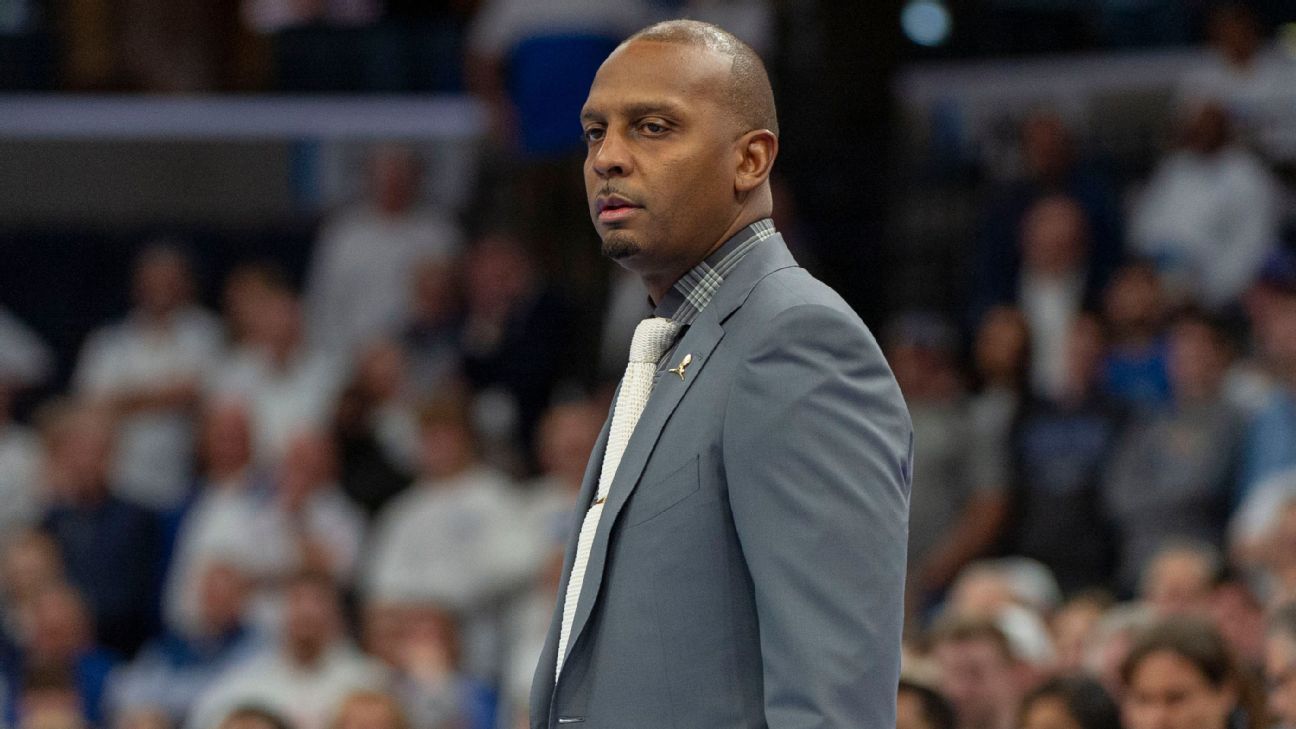An Independent Accountability Resolution Process hearing panel concluded that Memphis Tigers basketball coach Penny Hardaway didn’t violate NCAA rules when he provided benefits to three prospective student-athletes because of his long-standing philanthropy in Memphis, according to a decision released on Tuesday.
The IARP panel ruled that Memphis failed to monitor the education and activities of an athletics booster, provided impermissible extra benefits, conducted impermissible recruiting activities with prospective student-athletes and failed to cooperate with the investigative process by delaying the production of requested documents.
The Tigers were placed on three years’ probation through Sept. 26, 2025, and fined $5,000, plus 0.25% of their men’s basketball budget, after the IARP concluded Memphis committed four Level II violations and five Level III violations.
Memphis cannot appeal the ruling under IARP rules.
The Tigers were facing four Level I and two Level II rules violations after an 18-month investigation into the program. NCAA enforcement staff had alleged that Hardaway “failed to demonstrate that he promoted an atmosphere of compliance within the men’s basketball program” and failed to monitor his staff, and accused the university of lack of institutional control.
Hardaway was accused of being involved in one Level I violation and two Level II violations.
The school acknowledged in November 2019 that Hardaway, before he became the Tigers’ coach, had provided $11,500 in moving expenses for star center James Wiseman and his family to relocate from Nashville to Memphis in the summer of 2017. At the time, Hardaway was Wiseman’s coach on the Nike EYBL circuit and later coached him at Memphis East High School.
Hardaway, a former Memphis basketball star, was considered a booster by the NCAA due to a $1 million donation he gave the school in 2008 to build a sports hall of fame. The school said Wiseman was unaware of Hardaway’s payment to his family.
The NCAA ruled Wiseman ineligible, because it deemed his family had received improper benefits. Wiseman sued the NCAA, and a Shelby County judge issued a restraining order allowing him to play. After the judge’s ruling, the NCAA issued a statement saying, “The University of Memphis was notified that James Wiseman is likely ineligible. The university chose to play him and ultimately is responsible for ensuring its student-athletes are eligible to play.”
The IARP said despite having knowledge of Wiseman’s ineligibility, Memphis officials allowed him to compete in a game on Nov. 5, 2019, “without informing the head coach until after the contest that [Wiseman] had been determined to be ineligible to play.”
Wiseman, who was the No. 1-ranked prospect in the 2019 class, averaged 19.7 points, 10.7 rebounds and 3.0 blocks in three games for the Tigers. He later dropped his lawsuit against the NCAA, and the school declared him ineligible and applied for his reinstatement. The NCAA later suspended him for 12 games and upheld his punishment on appeal.
Wiseman, a 7-foot-1 center, left Memphis in December 2019 to prepare for the NBA draft. He was the No. 2 pick by the Golden State Warriors in the 2020 NBA draft and averaged 11.5 points and 5.8 rebounds as a rookie last season.
“The hearing panel concluded that the head coach’s philanthropic involvement in the Memphis community began prior to becoming an athletics booster in 2008 and before he was hired by Memphis as its head coach in 2018,” the IARP said in a release. “The case decision references numerous gifts and financial assistance provided by the head coach to many members of the Memphis community from the time he entered the NBA until he became Memphis’ head coach, including assistance provided either directly or to the families of three former prospective student-athletes who enrolled at Memphis and participated in men’s basketball.
“Based on the case record and information developed at the hearing, the hearing panel found that the benefits provided by the head coach to the three prospective student-athletes were not recruiting inducements. According to the hearing panel, it was established that the head coach had a long-standing philanthropic commitment, particularly to youth in the economically disadvantaged Memphis community, even prior to becoming an athletics booster. The hearing panel determined that the benefits provided by the head coach were generally available to all prospective students of Memphis, not only student-athletes, and, therefore, were permissible.”
Hardaway, who has an 85-43 record in four seasons, guided the Tigers to the second round of the NCAA tournament in March.
Memphis opens the season at Vanderbilt on Nov. 7.


